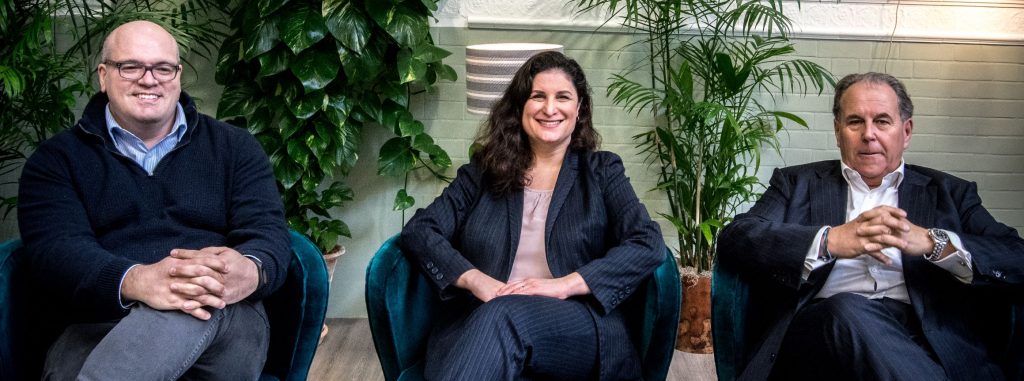With finance analysts predicting challenging economic conditions for the short to medium term, many small and medium enterprises (SMEs) are considering how to maximise interest from their cash.
SMEs miss out on interest by cash sitting in bank accounts offering uncompetitive returns. This situation could be reversed if enterprises were to deposit their money into more competitive accounts in the UK. There are, however, challenges to achieving this as smaller enterprises lack the resources to proactively and professionally control their cash. They simply do not have the capacity for researching bank risks, opening accounts and moving money around.
Felicia Meyerowitz Singh, who co-founded the automated cash treasury manager Akoni in 2015, says that while UK businesses control over £311 billion (2019) in cash, the cost of savings inertia is huge: “Every year UK businesses and consumers lose £10 billion of interest income from not managing their cash adequately.”
Effective cash management offers real benefits for SMEs. “Active cash management can help businesses earn more from their cash.” says Felicia, “By knowing their own cash profile businesses can put money away in term deposits when they don’t necessarily need it and earn more interest.”
Every year UK businesses and consumers lose £10 billion of interest income from not managing their cash adequately.
Felicia Meyerowitz Singh

South African-born Felicia, who studied at WITS/UNISA, notes that while SMEs look to earn more interest on their cash, many banks are reducing their relationship management capacity and limiting the self-service tools for small enterprises. According to Felicia, Open Banking, a directive by the Competition and Markets Authority on behalf of the UK Government, has been a ‘game changer’ that opened up more competition and innovation to financial services.
“Technology and innovation have allowed for the creation of tools designed to help small businesses access funds, track spending and use personalised tools to help them make the most of their cash.” says Felicia whose London-based company forms part of the fintech drive to refresh traditional banking systems, replacing a ‘one size fits all approach’ with more personalised services and creating solutions (such as accessing multiple banks at the click of a mouse) that were not previously available.
While cash management platforms can ‘do the hard work’ for SMEs in finding the best deals across the market and moving their cash accordingly, they can also arrange to have a maximum of £85,000 in each account meaning all the client’s money is protected by the UK Financial Services Compensation Scheme. This pays out a maximum of £85,000 if a bank were to fail to pay back savings. Akoni operates under the scheme while also being authorised by the Financial Conduct Authority.

Data science is key to this innovation with machine learning harnessing company, sector and macro data to create ‘connector platforms’ like Ankoni that act as a bridge between banks and the customer. Such digital platforms have proved especially versatile during the present lockdown circumstances: “Our services were available to everyone even if they were working at home,” explains Felicia, “We even offer digital onboarding which has meant people can open accounts from their kitchen table.”
In the present circumstances, cash management platforms are seeing a rise in the level of interest from individuals and businesses seeking out their services. And while the Bank of England has cut interest rates to 0.1%, the platforms continue to offer customers the opportunity to spread their deposit across different accounts and a range of providers to try to increase the interest earned.
Companies like Akoni have also mobilised through the SME Fintech Taskforce to assist small businesses facing financial pressures arising from the pandemic. “SMEs are struggling to get funding due to the countrywide lockdowns associated with the pandemic,” says Felicia, “Akoni have joined the Taskforce which is dedicated to ensuring that SMEs have access to the financial assistance they need.” The Taskforce aims to provide a swift turn-key origination and underwriting platform that allows banks, alternative lenders and private debt lenders to virtually and digitally deploy funds to businesses at pace.

One of the main concerns of the Taskforce founders is that, despite extraordinary measures taken by the UK government to offer grants, loans and guarantees (including the British Business Banks’ Coronavirus Business Interruption Loan Scheme), funding may not get to those SMEs that most need it – or in the timeframe needed. At the launch of the Taskforce in March 2020, Adrian Black, CEO at NorthRow, explained the co-founders motivation: “Assistance from the government is essential and welcome but speed is critical, as businesses need funds fast and some will simply not survive long application processes.”
Such innovative finance support measures backed by companies like Akoni’s are offering a valuable lifeline to SMEs. This reflects the ambition of Felicia and her team to offer services that match the changing needs of their industry. These will be vital if the banking and financial sector are to effectively support SMEs to continue trading through uncertain times.
Felicia Meyerowitz Singh was the 2018 SACC Innovator of the Year winner.
Article by Antony Shaw










